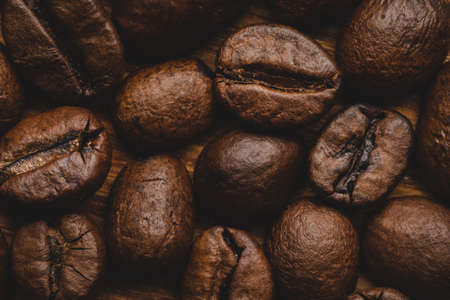Origins at the Farm: Ethical Sourcing and Fair Trade Principles
In the bustling world of British cafés, the journey of a coffee bean begins thousands of miles away on farms committed to Fair Trade principles. Under these guidelines, coffee cultivation is not merely about producing a commodity but ensuring that growers are treated with dignity and respect. Fair Trade certification requires strict adherence to ethical sourcing, meaning farmers receive a guaranteed minimum price for their beans—one that covers sustainable production costs and shields them from volatile market fluctuations. This commitment fosters equitable partnerships, enabling smallholder farmers to invest in their communities, schools, and local infrastructure. Sustainability is also at the forefront; producers must implement environmentally friendly farming methods such as shade-growing, organic fertilisation, and biodiversity preservation. These efforts ensure that every bean destined for a British café has been nurtured under conditions that respect both people and planet. As a result, when you sip your flat white or Americano in your favourite local spot, you can trust that the story of your coffee began with fairness and responsibility at its core.
2. The Art of Processing and Export: Maintaining Quality and Ethics
Once coffee cherries are harvested, the journey towards British cafés continues with meticulous post-harvest processing. This crucial stage determines both the flavour profile and ethical standing of the final cup. Farmers must choose between traditional washed, natural, or honey processing methods—each imparting distinctive sensory qualities to the beans. Washed coffees, for instance, often yield a clean acidity prized in London’s artisan coffee houses, whereas natural-processed beans can deliver bold, fruit-forward notes that appeal to adventurous palates across Britain.
Quality Control: From Sorting to Grading
Maintaining exceptional quality is non-negotiable for Fair Trade cooperatives aiming to meet rigorous British standards. After processing, beans undergo multiple stages of sorting—both manual and mechanical—to remove defects and ensure uniformity. They are then graded according to size, density, and cup profile before being prepared for export. This attention to detail not only safeguards flavour integrity but also upholds the transparency demanded by UK café owners and their discerning clientele.
Key Quality Control Stages
| Stage | Purpose | Impact on Cup |
|---|---|---|
| Sorting & Cleaning | Remove defective beans and debris | Prevents off-flavours and improves consistency |
| Grading | Classify by size and density | Ensures even roasting and balanced extraction |
| Cupping & Evaluation | Sensory analysis by experts | Selects lots that meet UK taste preferences |
Ethical Supply Chains: Beyond Traceability
The Fair Trade model guarantees more than just traceability; it enshrines equitable pay and working conditions throughout the supply chain. Before any green bean leaves its country of origin for British shores, it must pass through an audited supply network that supports farmer livelihoods, community projects, and environmental stewardship. This ethical framework is a cornerstone for many UK cafés who highlight direct-trade relationships on their menus—a point of pride in an increasingly conscious market.
Sustainability Initiatives within Fair Trade Supply Chains
- Community investment funds for healthcare and education in origin countries
- Environmental standards promoting shade-grown coffee and reduced chemical use
- Transparency certifications recognised by UK importers and retailers
This careful orchestration of quality control measures and ethical practices ensures that every cup served in a British café represents not only exceptional taste but also a genuine commitment to fairness from farm to export dock.

3. Arrival in the UK: Roasting with Integrity
Upon arrival in the United Kingdom, Fair Trade coffee beans embark on a new phase of their journey, entering the hands of dedicated British roasteries. These establishments are at the heart of Britain’s artisan coffee culture, blending traditional roasting craftsmanship with modern values of transparency and ethical sourcing. British roasters carefully select Fair Trade beans not only for their traceable origins but also for their potential to express unique flavour profiles when roasted with precision.
Transparency is paramount; many roasteries openly share details about the beans’ provenance, harvest method, and even the farmers’ stories, fostering a sense of connection between producer and consumer. The roasting process itself is an intricate art, balancing time, temperature, and airflow to unlock the beans’ inherent character while preserving the integrity of their origin. Small-batch roasting is common, allowing meticulous control and experimentation to highlight subtle notes—whether it’s the vibrant acidity of an Ethiopian Yirgacheffe or the chocolatey undertones of a Colombian Supremo.
Moreover, British roasteries often invite local communities to witness or participate in cupping sessions and roast demonstrations, further demystifying the journey from green bean to finished product. This open approach underscores their commitment to ethical practice and quality assurance, providing customers with not just a cup of coffee but a transparent narrative behind every sip. By championing both skillful roasting and honest communication, these UK roasters ensure that every Fair Trade bean realises its fullest potential while upholding the principles upon which it was sourced.
4. From Roastery to Café: Local Distribution Networks
The journey of a Fair Trade coffee bean continues as it leaves the artisan roasteries dotted across the UK, bound for both independent coffee shops and bustling high street chains. The process is meticulously managed to ensure that the beans retain their peak freshness, a critical factor for delivering the characteristic flavours celebrated in British café culture. Logistics partners, often specialising in temperature-controlled storage and delivery, play a crucial role in bridging the gap between the local roastery and cafés from Edinburgh to Brighton.
Distribution Channels: How Beans Reach Your Favourite Spot
| Roastery Type | Distribution Method | Café Type Served |
|---|---|---|
| Independent Local Roasteries | Direct Delivery or Local Courier | Artisan & Community Cafés |
| Specialist Fair Trade Suppliers | Wholesale Distributors | High Street Chains & Boutique Cafés |
The Importance of Timely Delivery
Timing is everything; freshly roasted beans are typically delivered within 24-48 hours post-roasting to guarantee optimal aroma and flavour. Many UK roasteries operate on a just-in-time model, roasting only what’s ordered to prevent staleness—a practice highly valued by discerning British baristas.
Sustainability and Traceability in Local Distribution
Sustainable logistics are increasingly prioritised within the UKs coffee supply chain. Electric delivery vehicles, reusable packaging, and digital tracking systems ensure that both environmental impact and traceability are accounted for at every stage. This commitment to sustainability aligns with the ethical foundation of Fair Trade, resonating strongly with UK consumers who seek transparency from farm to cup.
5. Crafting the Perfect Brew: British Café Culture
As Fair Trade coffee beans reach British cafés, the journey enters a crucial stage—transformation into a memorable cup that reflects both ethical sourcing and technical mastery. The UK’s café culture is renowned for its meticulous approach to brewing, where the expertise of trained baristas becomes paramount. These professionals are not just coffee makers; they are artisans who understand the nuanced flavours of Fair Trade beans and possess the skills to extract their full potential.
The Role of Trained Baristas
Baristas across Britain undergo rigorous training, often certified by organisations such as the Specialty Coffee Association (SCA). Their knowledge extends from grind size calibration and water temperature control to latte art and customer interaction. When handling Fair Trade beans, they pay special attention to roast profiles and origin characteristics, ensuring each brew highlights unique notes—whether it’s the chocolatey richness of Peruvian beans or the bright acidity of Ethiopian varieties. This technical precision honours the work of farmers and amplifies the value of ethical sourcing in every cup served.
Distinctive Features of UK Coffee Culture
British café culture is a blend of tradition and innovation. While tea has long held pride of place, recent decades have seen an explosion of independent coffee shops in cities like London, Manchester, and Edinburgh. Here, customers expect more than just caffeine—they seek traceability, sustainability, and quality. Cafés frequently display information about their Fair Trade offerings, including farm origins and tasting notes, fostering transparency and informed choices. The communal atmosphere, often enhanced by locally sourced pastries or vegan options, creates a space where enjoying Fair Trade coffee becomes a shared experience rooted in social consciousness.
Celebrating Ethical Excellence in Every Cup
The synergy between skilled baristas and ethically sourced beans encapsulates what makes British coffee culture distinctive. Each perfectly crafted cup not only delivers on taste but also tells a story—from the farmer’s dedication to sustainable practices to the barista’s pursuit of excellence. In this way, UK cafés play a vital role in promoting Fair Trade principles while elevating everyday rituals into acts of global solidarity.
6. Savouring the Impact: Community, Taste, and Transparency
As we reach the final stage of the fair trade coffee journey, it’s essential to reflect on the pivotal role British consumers play in shaping a more ethical global coffee industry. Every cup enjoyed in a local café isn’t just about personal pleasure—it is a testament to conscious choices that resonate far beyond our borders.
The Power of Choice in British Cafés
When customers select a fair trade brew at their favourite independent or high street café, they are casting a vote for fairness, transparency, and sustainability. The rise of traceable coffee menus and baristas who proudly share the story behind each bean reflects an increasing demand for authenticity and ethical sourcing. This isn’t just a trend; it’s becoming an integral part of British café culture.
Building Community Through Coffee
Cafés across Britain have evolved into hubs for community connection. By supporting fair trade coffee, these establishments foster not only local relationships but also global ones—connecting farmers in distant lands with coffee lovers here at home. Each sip becomes a subtle but powerful act of solidarity, demonstrating respect for both producers and the planet.
Taste as a Reflection of Ethics
The complex flavours found in a well-brewed cup of fair trade coffee are more than a sensory experience—they tell a story of careful cultivation, equitable partnerships, and transparent supply chains. Discerning British consumers increasingly appreciate that superior taste can—and should—go hand-in-hand with responsible practices.
Transparency Breeds Trust
Transparency has become a hallmark of modern specialty coffee in the UK. From detailed origin information on packaging to open conversations between baristas and patrons, this openness fosters trust and encourages ongoing support for ethical sourcing models. In turn, this ensures that every pound spent continues to drive positive change at origin.
A Cup That Connects Worlds
Ultimately, enjoying fair trade coffee in a British café is about more than satisfying a craving—it’s about participating in a broader movement towards equity and sustainability. With each purchase, consumers affirm their commitment to making meaningful global connections, one thoughtful cup at a time.


